|
|
|
Книги Michael Dobbs

|
The world is peering into the terrifying chasm of a new kind of conflict, where computers take over from missiles and global damnation comes at the click of a button. Cyber-warfare: the kind that brings nations to their knees, switching off energy lifelines, crippling the financial markets, starving leaders of authority. An old Russian nuclear reactor goes into Chernobyl-style meltdown, while on the other side of the world, the US Eastern Seabord is plunged into darkness. Nobody knows — yet — who is responsible for the chaos. Hidden from the rest of the world, an extraordinary meeting of the US President, the Russian President and the British Prime Minister is about to take place. They have the weekend to save the world — and they must do it alone. Meanwhile something serious is going on in Beijing: it looks as though the Chinese are preparing for the final thrust against their old enemies, bringing them to their knees without a single shot being fired... |

|
October 27, 1962, a day dubbed Black Saturday in the Kennedy White House. The Cuban missile crisis is at its height, and the world is drawing ever closer to nuclear apocalypse. As the opposing Cold War leaders, John F. Kennedy and Nikita Khrushchev, mobilize their forces to fight a nuclear war on land, sea and air, the world watches in terror. In Bobby Kennedy’s words, ‘There was a feeling that the noose was tightening on all of us, on Americans, on mankind, and that the bridges to escape were crumbling.' In One Minute to Midnight Michael Dobbs brings a fresh perspective to this crucial moment in twentieth-century history. Using a wealth of untapped archival material, he tells both the human and the political story of Black Saturday, taking the reader into the White House, the Kremlin and along the entire Cold War battlefront. Dobbs's thrilling narrative features a cast of characters – including Soviet veterans never before interviewed by a western writer – with unique stories to tell, witnesses to one of the greatest mobilizations of men and equipment since the Second World War. |
|